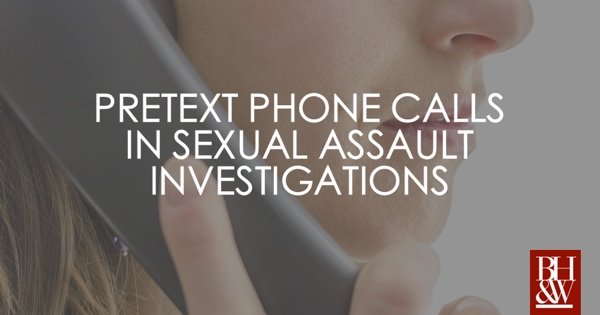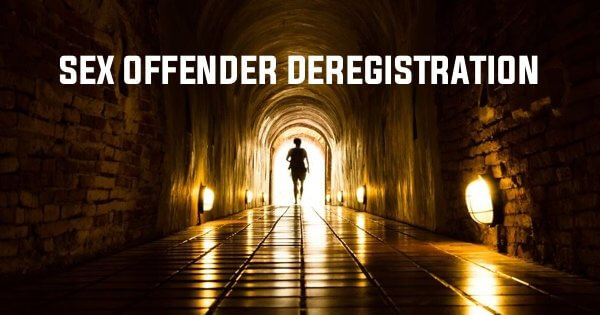 In Texas, the law governing sex offender registration contains several provisions that apply specifically to juveniles. This means that sex offender registration works differently in juvenile cases than it does in adult cases. This article will highlight how sex offender registration works in the Texas juvenile justice system and why this is an appropriate approach to take in these cases. This article will not discuss exemptions to the sex offender registration law for certain young adult offenders.
In Texas, the law governing sex offender registration contains several provisions that apply specifically to juveniles. This means that sex offender registration works differently in juvenile cases than it does in adult cases. This article will highlight how sex offender registration works in the Texas juvenile justice system and why this is an appropriate approach to take in these cases. This article will not discuss exemptions to the sex offender registration law for certain young adult offenders.
Sex Offender Registration in Juvenile Cases
The two biggest differences between sex offender registration in adult and juvenile cases involves how long the duty to register lasts and exemptions or deferrals for certain juvenile cases.
Expiration of the Duty to Register
Sex offender registration in Texas is contained in Chapter 62 of the Texas Code of Criminal Procedure. Under Section 62.101, the duty to register in adult cases is for life. However, in juvenile cases, the duty to register ends ten years after the end of the sentence. This ten-year provision also applies to juvenile cases that are certified and transferred to adult court.
Exemptions for Certain Juvenile Cases
According to Section 62.351 of the Code of Criminal Procedure, either during or after the dispositional hearing in a case in which a juvenile has been adjudicated for a registrable offense, the court can hold a hearing to determine whether the interests of the public require this particular juvenile to register under Chapter 62. This hearing will only be held if, prior to the hearing, the attorney for the juvenile has filed a motion asking the court to consider exempting him from the registration requirements.
During this hearing, which does not involve a jury, the juvenile must prove by a preponderance of the evidence that the protection of the public would not be increased by the registration or that any increase in the protection of the public is clearly outweighed by the anticipated substantial harm to the juvenile and his family caused by registration. After the hearing, the court, under Section 62.352, can make one of several rulings. If the court determines that the juvenile has met his burden of proof, the court must exempt the child from the duty to register. If the juvenile has not met his burden, the judge can either make the child register, make the registration nonpublic, or defer the decision on registration until after the juvenile has completed treatment.
Deferral of the Registration Requirement Certain Juvenile Cases
If the court decides to defer the registration, the juvenile is not required to register during the deferral period. This deferral will automatically turn into an exemption if the juvenile successfully completes treatment, unless the prosecuting attorney files a motion requesting a hearing to reconsider the issue of registration.
Other Scenarios
Under Sections 62.353 and 62.354, juveniles who are already registering under Chapter 62, or those who are required to register due to an out-of-state adjudication, may also petition the court to have their registration either deferred or waived. These provisions require a hearing similar to that discussed above with exemptions.
Tarrant County’s Approach to Juvenile Sex Offender Registration
No one can guarantee a particular outcome in a specific case. Every case, and every set of facts, is different and unique. However, many times, in Tarrant County, if a motion is filed by the juvenile’s attorney, the court will consider deferring the registration requirement until the end of probation to see if the juvenile can successfully complete treatment.
Other States’ Approaches to Juvenile Sex Offender Registration
It is important to note that not all states have a provision for exempting or deferring a juvenile’s sex offender registration requirements. This means that if a child is adjudicated of a sex offense requiring registration in Texas and then moves out of state, he may be required to register under the new state’s laws.
Why is This an Appropriate Approach to Juvenile Sex Offender Registration?
At first blush, exempting juveniles from registering after they have been adjudicated of a sex offense seems wrong. However, it is important to remember that sex offender registration is a far-reaching consequence that can have profound effects on the life of the person subject to registration. These effects can be even more profound when the person who must register is an 11 or 12-year-old child. It is also important to note that research has shown repeatedly that juveniles who successfully complete treatment are less likely to reoffend than adults. Many juveniles who commit sexual offenses are not pedophiles, but instead, are curious, experimenting, or have not yet developed an acceptable level of impulse control.
While these behaviors are wrong, serious, and need to be addressed, sex offender registration is not the appropriate vehicle to do that. By allowing the exemption or deferral of registration in juvenile cases, Chapter 62 allows judges to evaluate each of these very different cases on their merits and apply the law in the most appropriate way for that case. It also allows juveniles to have a chance at rehabilitation before imposing drastic and long-lasting consequences on them that may devastate their lives before they ever really begin.
Conclusion
Sex offender registration is applied differently in adult cases than it is in juvenile cases. This is due to a few provisions in the law that apply specifically to juveniles. The biggest difference in the two systems is that, in juvenile cases, the judge has discretion over the issue of registration. The court can, if it chooses, defer that registration to see how the juvenile does in treatment. This allows courts to tailor a disposition and consequences to better suit a particular juvenile’s situation while still providing for the protection of the public.
This article is not intended to provide legal advice about any particular case. It is only intended to be a general overview of the sex offender registration law in juvenile cases. For legal advice, please consult an attorney about your case.










